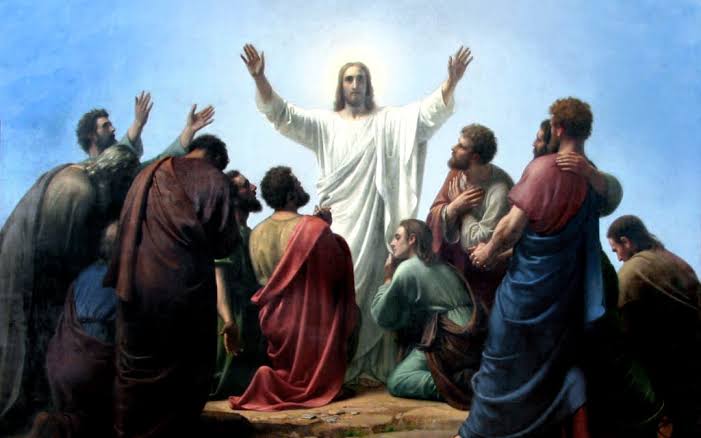
The concept of “The Message of God” is central to understanding divine interaction with humanity. It encompasses God’s communication of His will, His character, His warnings, and His offers of redemption. This message is not merely theoretical; it is often delivered through chosen messengers, requiring both divine initiative and human response. The biblical book of Jonah provides a profound, multi-layered narrative that beautifully illustrates the nature of God’s message, the challenges faced by His messengers, and the transformative power of divine mercy.
The Messenger’s Call and Flight: Jonah 1:1-17; 2:1-10
The Book of Jonah opens with a direct, unambiguous divine command, immediately setting the stage for the profound interplay between God’s will and human agency.
1. The Divine Imperative: A Call to a Reluctant Messenger (Jonah 1:1-2) The narrative begins with the Lord’s word coming to Jonah, son of Amittai, instructing him to “Arise, go to Nineveh, that great city, and call out against it, for their evil has come up before me.” This initial directive reveals several key aspects of God’s message:
- Direct Communication: God chooses a specific individual to deliver His message.
- Specific Destination: Nineveh, the capital of Assyria, was a formidable and notoriously cruel empire, an enemy of Israel. This choice is significant, immediately introducing the tension of God’s concern for even “enemies.”
- Clear Purpose: The message is a “call out against” their wickedness, indicating a warning of impending judgment if their ways do not change. God is just and righteous, and He recognizes moral transgressions.
2. The Messenger’s Disobedience: A Flight from Divine Purpose (Jonah 1:3) Surprisingly, Jonah’s immediate reaction is not obedience but outright rebellion. “But Jonah rose to flee to Tarshish from the presence of the Lord.” Tarshish was a port city likely in modern-day Spain, representing the farthest known point west from Israel – diametrically opposite to Nineveh, which was to the east. Jonah’s flight underscores a fundamental challenge for any messenger: personal bias and reluctance to align with God’s broader compassionate purpose. He likely harbored deep resentment towards Nineveh and desired their destruction, not their repentance. His action demonstrates that even a prophet can struggle with God’s universal mercy.
3. Divine Intervention: The Storm and the Revelation (Jonah 1:4-10) God, being sovereign over all creation, does not allow Jonah’s disobedience to thwart His plan.
- The Sovereign Hand: “But the Lord hurled a great wind upon the sea, and there was a mighty tempest on the sea, so that the ship threatened to break up.” This is not a random act of nature but a targeted divine intervention. God actively pursues His messenger and demonstrates His control over the natural world.
- Pagan Piety vs. Prophetic Slumber: The gentile sailors, terrified by the storm, immediately cry out to their own gods and lighten the ship by throwing cargo overboard. Meanwhile, Jonah is found asleep in the ship’s hold – a stark contrast that highlights his spiritual apathy and denial.
- Exposing the Truth: Through casting lots, Jonah is revealed as the cause of the storm. He is confronted by the sailors, who ask about his identity and his God. Jonah confesses, “I am a Hebrew, and I worship the Lord, the God of heaven, who made the sea and the dry land.” This confession reveals his identity and the awesome power of the God he is trying to escape, further terrifying the sailors.
4. The Ultimate Sacrifice and Divine Rescue: Into the Depths (Jonah 1:11-17) The sailors, seeing the storm worsen, reluctantly agree to Jonah’s desperate solution: to throw him overboard, for he knows it is because of him that the storm rages.
- A Reluctant Sacrifice: Before throwing him, they pray to the Lord, pleading for forgiveness so they would not be held accountable for Jonah’s death. This demonstrates their emergent fear and respect for Jonah’s God. Once Jonah is thrown into the sea, the storm immediately ceases. This further solidifies the sailors’ awe, leading them to offer sacrifices and vows to the Lord.
- A “Prepared” Deliverance: “And the Lord appointed a great fish to swallow up Jonah. And Jonah was in the belly of the fish three days and three nights.” This is not an act of immediate punishment but a divinely orchestrated rescue and a unique confinement. The “great fish” serves as an extraordinary vessel for Jonah’s survival and a place for profound spiritual reflection.
5. Prayer from the Abyss: A Cry for Deliverance (Jonah 2:1-10) From the depths of the fish’s belly, Jonah offers a heartfelt prayer, a psalm of distress, repentance, and renewed vow.
- A Prayer of Distress and Hope: Jonah recounts his descent into the depths, overwhelmed by the waters, yet declares, “I called out to the Lord, out of my distress, and he answered me.” He acknowledges being cast out from God’s sight but holds onto hope of looking again toward God’s holy temple.
- Confession and Commitment: He confesses his folly of pursuing “worthless idols” (a reference to his own desires over God’s will) and vows, “But I with the voice of thanksgiving will sacrifice to you; what I have vowed I will pay. Salvation belongs to the Lord!” This signifies a turning point, a recognition that rescue comes solely from God.
- Divine Command and Release: “And the Lord spoke to the fish, and it vomited Jonah out upon the dry ground.” God’s sovereignty over creation is once again emphasized. The fish, an instrument of divine discipline and rescue, obeys God’s command, delivering Jonah to dry land, ready for his renewed mission.
This phase of the story powerfully illustrates God’s relentless pursuit of His chosen messenger, His control over all creation to achieve His purposes, and His willingness to use extraordinary means to bring about repentance and a yielded spirit in His servants. The message of God cannot be outrun.
The Message, Repentance, and Divine Compassion: Jonah 3; 4:1-11
Having been dramatically reoriented, Jonah is now ready to deliver God’s message, leading to an astonishing societal transformation and a critical lesson on divine mercy.
1. The Renewed Commission and Jonah’s Obedience (Jonah 3:1-3) “Then the word of the Lord came to Jonah a second time, saying, ‘Arise, go to Nineveh, that great city, and call out against it the message that I tell you.'”
- God’s Patience and Consistency: Despite Jonah’s previous disobedience, God does not revoke His call. He extends grace and repeats the exact same command. This highlights God’s unwavering commitment to His message and His purposes.
- Jonah’s Yielding: This time, “Jonah arose and went to Nineveh, according to the word of the Lord.” His terrifying ordeal has humbled him, and he now obeys.
- The Great City: Nineveh is described as “an exceedingly great city, three days’ journey in breadth.” This emphasizes its vastness, power, and perhaps, its deep-seated wickedness, making the subsequent events even more remarkable.
2. The Delivery of the Message (Jonah 3:4) Jonah enters the city and begins to proclaim: “Yet forty days, and Nineveh shall be overthrown!”
- Simplicity and Directness: The message is surprisingly concise and stark: a direct warning of impending judgment. There are no elaborate theological explanations, just a clear declaration of divine intent due to their wickedness.
- The Power of God’s Word: The brevity of the message belies its immense power, for it is the word of God himself.
3. The Astounding Response: Nineveh’s Repentance (Jonah 3:5-9) This is the dramatic climax of the story and a testament to the transformative power of God’s message.
- Universal Belief and Action: “And the people of Nineveh believed God. They called for a fast and put on sackcloth, from the greatest of them to the least of them.” This is an unprecedented, widespread, and immediate response. It demonstrates a genuine conviction of sin and a desperate plea for mercy.
- The King’s Decree: The king of Nineveh, hearing the news, descends from his throne, lays aside his robe, covers himself with sackcloth, and sits in ashes – a powerful symbol of humility and repentance. He then issues a decree for a nationwide fast, not just for people but even for animals, to cry out earnestly to God.
- Hope in God’s Mercy: The king’s decree reflects a profound theological insight: “Who knows? God may turn and relent and turn from his fierce anger, so that we may not perish.” This demonstrates a belief in God’s compassion and His responsiveness to genuine repentance, even among those outside the covenant people.
4. God’s Compassion: A Relent from Judgment (Jonah 3:10) “When God saw what they did, how they turned from their evil way, God relented of the disaster that he had said he would do to them, and he did not do it.”
- God’s Responsive Nature: This verse is crucial. It shows that God’s character is not rigidly bound to pronouncements of judgment when true repentance occurs. He is merciful and willing to avert disaster when people turn from their wickedness. His ultimate desire is for salvation, not destruction.
- The Message’s Purpose Achieved: The message of judgment served its purpose: to bring about repentance and lead to God’s mercy.
5. The Messenger’s Anger and God’s Lesson (Jonah 4:1-11) Paradoxically, Jonah is furious at God’s mercy towards Nineveh. This final chapter reveals the profound spiritual struggle within the messenger himself.
- Jonah’s Indignation: “But it displeased Jonah exceedingly, and he was angry.” He complains to God, revealing that his earlier flight was precisely because he knew God was “a gracious God and merciful, slow to anger and abounding in steadfast love, and relenting from disaster” (Jonah 4:2). He wanted judgment for his enemies, not mercy. This highlights the dangers of human prejudice obstructing divine love.
- God’s Gentle Rebuke: “Do you do well to be angry?” (Jonah 4:4). God patiently engages Jonah, inviting him to reflect on his disproportionate anger.
- The Object Lesson: The Plant, the Worm, and the Wind: Jonah goes out of the city, hoping to see its destruction. God causes a plant to grow, providing Jonah shade, which makes him “exceedingly glad.” Then, God appoints a worm to attack the plant, causing it to wither. Simultaneously, God sends a scorching east wind, and Jonah, miserable and exposed, again wishes for death.
- The Climactic Question (Jonah 4:9-11): God uses this entire experience to teach Jonah. He asks, “Do you do well to be angry for the plant?” Jonah replies, “I do well to be angry, angry enough to die.” Then comes God’s powerful conclusion: “You pity the plant, for which you did not labor, nor did you make it grow, which came into being in a night and perished in a night. And should not I pity Nineveh, that great city, in which there are more than 120,000 persons who do not know their right hand from their left, and also much cattle?”
- God’s Universal Compassion: This is the profound heart of God’s message. Jonah cared more for a temporary plant than for over 120,000 human beings (and their animals) who were spiritually ignorant (“do not know their right hand from their left” often interpreted as moral or spiritual immaturity, or lack of knowledge of God).
- God’s Perspective vs. Human Prejudice: God’s compassion extends beyond national boundaries, personal likes or dislikes, or deservedness. He cares for all His creation, even those who were previously hostile or whom His messenger despises. The message of God is ultimately wrapped in boundless mercy and a desire for all to come to repentance.
Conclusion: The Enduring Message of God
The Book of Jonah, though brief, provides an incredibly rich tapestry for understanding “The Message of God.” It reveals:
- God’s Unwavering Purpose: He initiates His message, pursues His chosen messengers, and ensures His word is heard, even through dramatic interventions.
- The Power of God’s Word: A simple warning, when delivered by divine authority, can bring about a nationwide, transformative repentance.
- God’s Boundless Mercy: While God is just and calls out wickedness, His ultimate character is defined by a readiness to forgive and relent from judgment when genuine repentance occurs. His love extends to all people, regardless of their past or their perceived “worthiness.”
- The Messenger’s Challenge: Being a messenger of God requires aligning one’s heart with God’s compassionate nature, overcoming personal prejudices, and embracing God’s desire for the salvation of all. The story serves as a profound reminder that the message of God is not about demanding judgment, but about extending an invitation to repentance and life. It is a testament to a God who relentlessly pursues not only His chosen messengers but also the lost, offering grace to all who will hear and respond.






